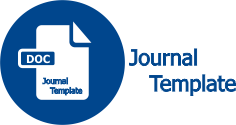Pengembangan E-Modul pada Materi Koloid untuk Meningkatkan Kemampuan Berpikir Kreatif Peserta Didik
(1) Universitas Negeri Makassar
(2) Universitas Negeri Makassar
(3) Universitas Negeri Makassar
(*) Corresponding Author
DOI: https://doi.org/10.26858/cer.v5i2.32732
Abstract
Keywords
Full Text:
PDFReferences
Achmad, Syarif Rijaludin, dan Suparman. (2019). Analisis Kebutuhan E-Modul Berpendapatan RME Untuk Meningkatkan Kemampuan Berpikir Kreatif Peserta Didik. Prosiding Sendika. Jurnal Magister Pendidikan Matematika, Universitas Achmad Dahlan. Yogyakarta, 5(1).
Andriani, Mery dan Muhali, dan Citra Ayu Dewi. (2019). Pengembangan Modul Kimia Berbasis Kontekstual Untuk Membangun Pemahaman Konsep Siswa Pada Materi Asam Basa. Jurnal Pendidikan Kimia, 7(1).
Husniah, Mahirotul. (2018). Pengembangan E-Modul Berbasis Model Pembelajaran Problem Based Learning Mata Pelajaran PAI. (Tesis). Pascasarjana UIN Maulana Malik Ibrahim Pendidikan Agama Islam: Malang.
Istikomah, dan Riawan Yudi Purwoko, dan Puji Nugraheni. (2020). Pengembangan E-Modul Matematika Berbasis Realistik Untuk Meningkatkan Kemampuan Berpikir Kreatif Siswa. Jurnal Universitas Muhammadiyah Purwokerto, 7(2).
Novalia, Herdin. (2018). Pengembangan Modul Pembelajaran Matematika Dengan Menggunakan Strategi Pq4r Untuk Meningkatkan Kemampuan Berpikir Kreatif Dan Kemandirian Belajar Siswa SMA. (Tesis). Pendidikan Matematika Fakultas Keguruan Dan Ilmu Pendidikan Universitas Lampung Bandar Lampung: Lampung.
Seruni, Rara dan Siti Munawaroh, dan Fera Kurniadewi, dan Muktiningsih Nurjayadi. (2019). Pengembangan Modul Elektronik (E-Modul) Biokimia Pada Materi Metabolisme Lipid Menggunakan Flip Pdf Professional. Jurnal Tadris Kimiya Magister Pendidikan Kimia, 4(1).
Silver, Edward A. (1997). Fostering Creativity Through Instruction Rich in Mathematical Problem Solving and Problem Posing. University of Pittsburgh: USA.
Wahyuningtias, Ria Putri dan Munzil, dan Suharti. (2020). Pengembangan Multimedia Pembelajaran Kimia Kelas XI SMA Pada Materi Koloid. Universitas Negeri Malang.
Article Metrics
Abstract view : 574 times | PDF view : 139 timesRefbacks
- There are currently no refbacks.
Jurnal dipublikasikan oleh: Program Studi Pendidikan Kimia
Program Pascasarjana Universitas Negeri Makassar
Alamat JL. Bonto Langkasa Gunung Sari Makassar, 90222
Kampus PPs UNM Makassar Gedung AD ruang 406 Lt 4, Indonesia.Phone 082393643737/085145825311/085242228678
CER UNM Indexed by:

Chemistry Education Review (CER) is licensed under a Creative Commons Attribution-NonCommercial 4.0 International License.










